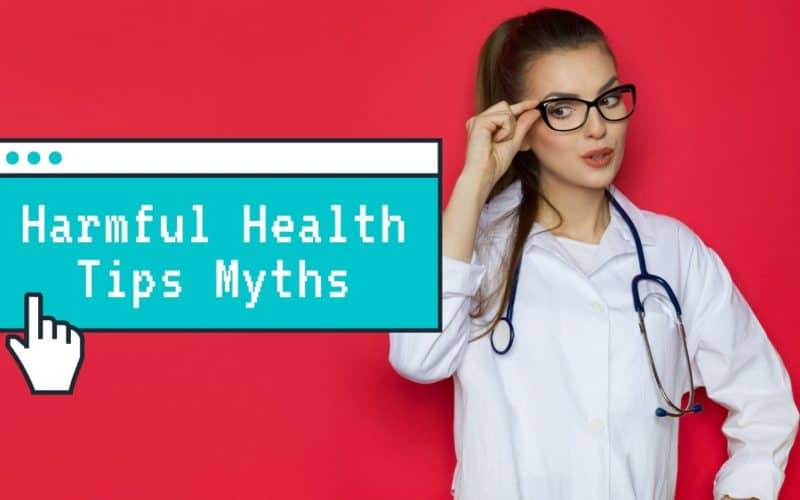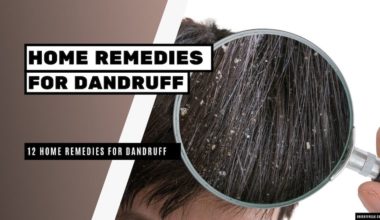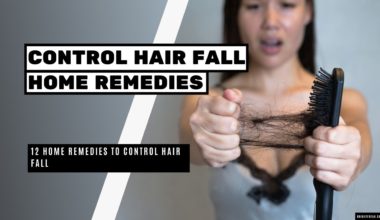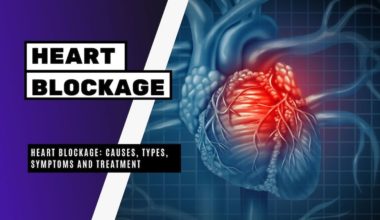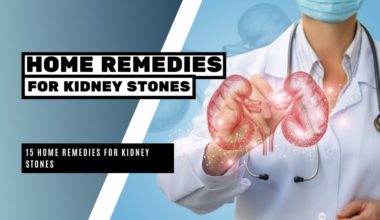We retain all the helpful advice tidbits we ever learned when we were growing up and supplemented them with our own research from the internet and friends. Some of the tips we have always believed are not just unhelpful; they can be unhealthy. So, we have gathered such ten health tip myths that are more harmful than helpful.
Harmful Health Tip Myths:
1. The more exercise you get, the better
These health tip myth not necessarily true. In fact, research shows that people who exercise strenuously, such as long-distance runners, have as much risk for early death than the average couch potato.
A study in Germany’s European Heart Journal followed 108 marathon runners and those who lived sedentary lifestyles, charting their health throughout the study.
Overall, the findings were sobering: the marathon runners showed higher incidents of coronary plaque build-up, which is a large contributing factor in heart disease.
There are other studies backing these findings up, showing that excessive and rigorous programs can diminish the overall health benefits of exercise.
Why? The body is designed to fight stressors for the first hour. After that, your anti-oxidants are depleted, and you are releasing oxidants, a contributing factor to disease.
During this time, cholesterol is binding with free radicals, contributing to arterial plaque buildup. Now What? Exercise has many benefits, and overall those who exercise moderately will see the best health return for their efforts.
For runners, this ranges from five to nineteen miles a week, spread across three to four weekly sessions, at about six or seven miles per hour. People who keep this pace will find their risk of early death dropping by about 25%.
2. Supplementing the diet is helpful
This is a very popular health tip myths. Going beyond a daily multivitamin may not be necessary and may even be harmful.
Many of what are traditionally regarded as beneficial supplements have been proven to be anything but. It is easy to “overdose” on them, and many have more risk to the user than benefit. One famous example is calcium, which proved to increase death by heart disease overall, and increases the risk of prostate cancer among healthy men.
Fish oil has not been proven to be effective, and there is a link between too many anti-oxidant supplements and an increase in the cancers that they are supposed to reduce.
Why? Between misleading labeling, synthetic production, and even the use of prescription drugs that have been pulled off the market as ingredients, supplements are not always what they seem.
They don’t have to follow the FDA guidelines, and warning labels are not required. Without these labels, many people are unaware that some supplements will reduce the effectiveness of prescription drugs they are taking; famously, St. John’s Wort reduces the efficacy of birth control pills, and 5HTP interferes with a drug commonly used for Parkinson’s.
Now What? Most of the supplements we take can be found in healthy food choices. If you still feel the need to supplement, make sure to do your own research and find brands that are properly labeled.
3. Fat-free products are better
Another health tip myths are that Fat-free products are better. Not entirely. In fact, studies show that fat-free diets do not bring the benefits that we have always believed them to; they don’t fight weight gain, cancer, or even heart disease as much as has been traditionally believed.
In fact, too little fat intake will cause memory issues, skin problems, and fatigue. Fat-free choices are not always the best.
Why? Fat-free foods on their own do not taste very good. Manufacturers will load them up with sugars, or even worse, artificial sweeteners, to make them palatable.
Now What? Fats make up a necessary portion of our diets and should make up between 20% and 35% of calories. It’s helpful to cut back on fatty foods, but not necessary to eliminate them all together.
4. Low-calorie diets are effective
Define “low calorie.” Calories are your body’s fuel; without them, you will feel tired, cranky, and, of course, always hungry. You will also find that you will not lose weight if you are on a long-term diet consisting of extremely low caloric intake.
Why? When your body realizes that it’s not getting the fuel it needs, it will begin to slow metabolism while triggering insane cravings.
In short, when you deprive your body of calories, it thinks it is starving and will hold on to the same fat you’re trying to eliminate. At the same time, you will begin dreaming of cookies and ice cream; your body is trying to tell you that it needs fuel.
Now What? Weight loss is best accomplished through a balanced program of calorie reduction and moderate exercise. Avoid diet fads that promise rapid weight loss; these don’t work in the long run. Healthy calories are always a good option; get your calories from vegetables and grains.
5. Gluten-free for no reason
Gluten-free diets are necessary for those with Celiacs and other digestive or autoimmune disorders. More recently, it became a trendy new way for people to be “edgy” with their dietary choices.
Many believe that gluten-free diets will help with weight loss. The reality is that “gluten-free” products can contain as much sugar as their gluten cousins, and in some cases, even more. Gluten-free diets can have adverse effects on those who don’t need to be on them.
Why? Gluten helps populate the healthy bacteria in the gut that promotes digestion. Depriving the body of these probiotics can lead to a weakened immune system, constipation, and nutrient deficiencies cause by malabsorption of your foods.
Now What? Going gluten-free without any real reason, such as a digestive disorder or autoimmune disease, is not necessary. If you feel, however, that you genuinely do have a sensitivity to gluten, schedule an appointment with your doctor.
6. The rule of eights
We’ve heard it all our lives; eight 8-ounce glasses of water are the key to staying hydrated. This isn’t entirely true and could be causing us more harm than good. So, let’s busted these health tip myths.
Why? Drinking too much water can lead to hyponatremia, a process where the water you’re drinking dilutes the essential nutrients and electrolytes in your body. Hyponatremia can result in headaches, confusion, nausea, fatigue, and in extreme cases seizures and coma.
Now What? The sensation of thirst is the body’s way of telling you it needs hydration. Simply put, drink when you’re thirsty. If you need extra hydration because of heat or doing strenuous exercise, drink more or drink an electrolyte drink to restore the balance.
7. Bottled water is better for you
There is an entire culture out of bottled waters. Most people believe that tap water is bad for you and that bottled water is a magical elixir.
This leads to people spending insane amounts of money on the latest bottled water gimmick, some of which can make you sick. Discarded plastic bottles litter landfills everywhere, and, there is no benefit to drinking bottled water unless your tap water is loaded with unhealthy things.
Why? Some waters boast that they are pure and unfiltered. Unfiltered water can be rife with unwanted parasites such as e-coli and will make you sick. Other waters claim to be bottled from natural springs but, contain over fifty percent tap water.
Waters are not labeled in a way that lets you see what is in the bottle; we just assume it’s what manufacturers say.
Now What? Unless your tap water is from an unhealthy source or full of contaminants as determined by the EPA, use a refillable bottle and save yourself a lot of money.
8. Going outside with a wet head makes you sick
Sorry, grandma, this health tip myth is ridiculously false. The reason its bad advice is that it gives people a sense of immunity; if my hair is dry and I am bundled up against the cold, I won’t get sick. False.
Why? The rhinovirus, the cause of the common cold, thrives in colder temperatures. It won’t matter if your hair is wet or dry, being exposed to the cold virus will most likely make you sick.
Now What? Practice infection control by washing your hands, disinfecting surfaces, and trying to avoid those who are sick.
9. Ergonomic furniture is better
These health tip myths are not entirely true. Some furniture, like office chairs, boast that users will have less pain than common chairs; the reality is, many of these bizarre contraptions will cause the user more pain and even injury when used long term.
Why? Bad posture is not a one-size-fits-all problem. Ergonomic chairs are meant to be used by everyone, but someone taller or shorter than average is at risk for being placed in unnatural positions for long periods of time. This can cause pain and potentially, injury to your lower back.
Now What? Don’t just randomly purchase supposedly ergonomic furniture without trying it out in person first. It may even be possible to purchase supports for your existing chairs, such as wedges or back pillows, to help your posture and reduce back pain without breaking the bank by buying the next, greatest ergonomic invention.
You can also play with raising and lowering your computer keyboard to change the angles of your neck and arms.
10. If you’re sick, get antibiotics
This is a frustrating piece of health tip myth that is harmful in many ways. There is a rise of antibiotic-resistant strains of illness that is directly linked to people running to the doctor for antibiotics for every sniffle, and commonly used antibiotics are losing their efficacy.
Antibiotic addicts will ruin the antibiotic’s efficacy in their own bodies when they actually do need them and are at risk for gastrointestinal distress when the antibiotic kills off healthy bacteria in the gut.
Why? Antibiotics are only useful in bacterial infections. Viruses, the cause of flu and common colds, will not be killed by antibiotics. Taking antibiotics for these common illnesses is a waste of time and money.
Now What? If you have a common cold or flu, treat the symptoms, stay home to avoid spreading it, practice infection control, rest, hydrate, and let it run its course. Do not pressure a physician to give you a prescription for an antibiotic for an illness that it will not cure.
Common sense and a little research will help you sort through the maze of health myths, health truths, and advice that is not only not helpful but downright dangerous. What do you think of this ten health tip myths that are more harmful than helpful? Let’s us know in the comments.

